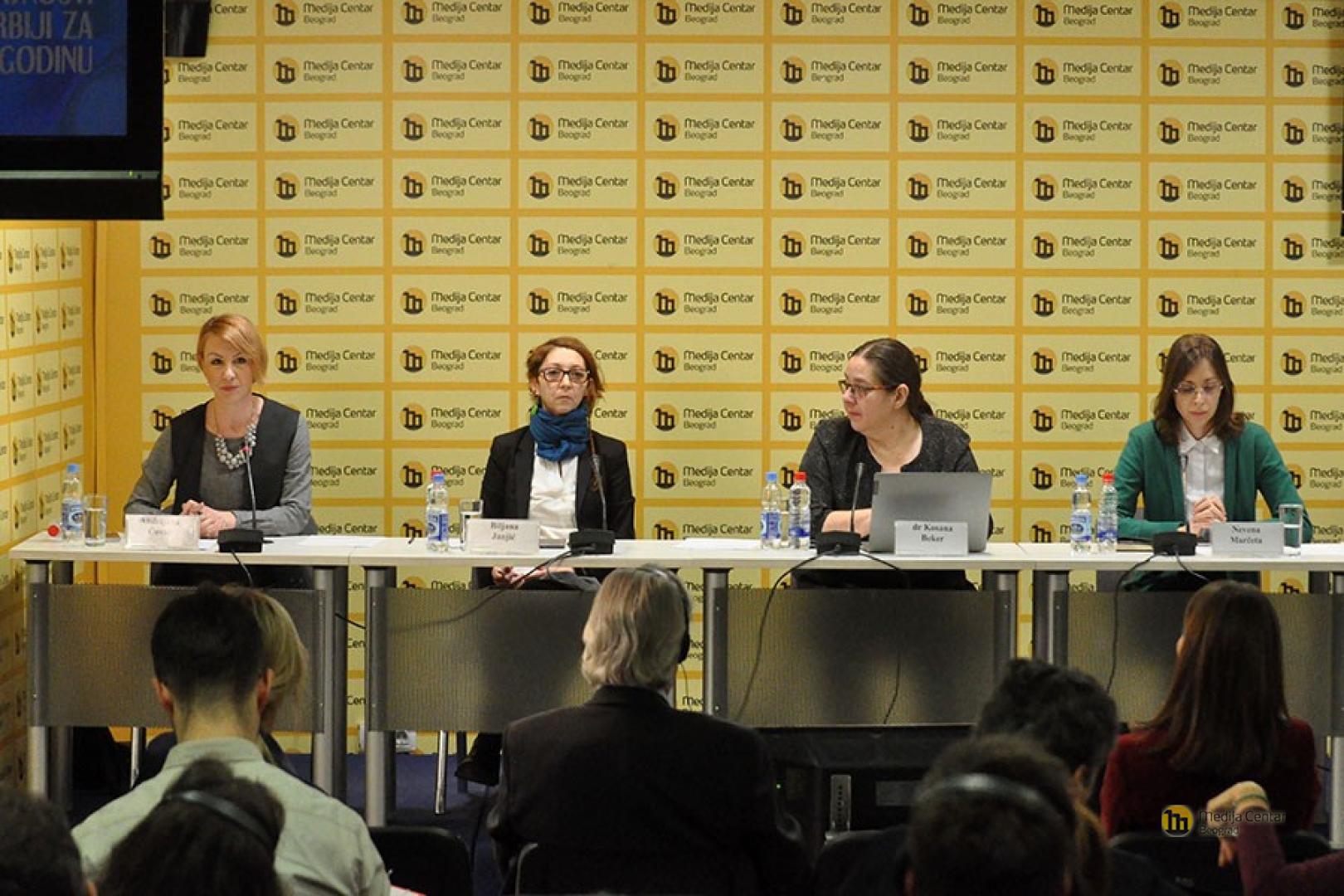New UN Women Study Reveals Alarming Statistics on Women’s Rights in Serbia
Date:

A recent study supported by UN Women sheds light on the status of women’s rights in Serbia and reveals concerning statistics despite the country’s adoption of significant laws and policies promoting gender equality. The study highlights the absence of key implementation mechanisms, thus keeping women underrepresented in almost all areas of life. The study underscores the urgent need for strong efforts to ensure the effective implementation of existing laws and policies to advance gender equality in the country.
The new study on women's rights in Serbia, titled Prenerazena (English: Shocked), sheds light on persistent gender inequalities in the country. Conducted by women’s civil society organization Femplatz with the support of UN Women Serbia and funded by the EU Gender Equality Facility programme, analyses the status of women’s rights in the country in across various areas from education and work to violence and health.
The study reveals that every two weeks, a woman in Serbia is killed in her own home by her partner. Additionally, the study finds that men earn 14.4 per cent more than women on average, highlighting a significant gender pay gap. Disturbingly, every third adolescent girl from Roma settlements is pregnant or already has children. Furthermore, there is only one gynecologist for every 5,812 women in the country, indicating shortage of essential healthcare services.
Presenting the findings of the study during the official launch event on 19 March, Biljana Janjic, Executive Director of Femplatz, said that the study will make everyone feel discouraged as there was no progress detected in the past five years except some legislation changes. "We can say that adoption of few laws tackling gender equality and women's rights is a step forward, but this failed to bring any substantial changes on the ground when it comes to the situation of women in our country," stressed Biljana.
She continued saying that even stagnation which was detected in various areas of life can lead to and be interpreted as regression "especially in the light of backlash against women's rights we are witnessing".
The special focus of this study was on rural women who are often facing the risk of multiple discrimination. Kosana Beker, Programme Director of Femplatz, noted the limited data and research available on rural women, necessitating reliance on field work and focus groups.
The challenges faced by rural women in Serbia were vividly described by one participant in a focus group:: “I get up at five, go to bed at 10 in the evening for the past 20 years. I work in a small company, then I get home to work in the field, in the garden and in the kitchen (…) Male members of the family don't do anything in the kitchen and they don’t do the laundry (…) There is no Saturday or Sunday...”
Nevena Marceta, Programme Manager at UN Women, added that rural women are denied access to numerous basic services and are facing various forms of discrimination and violence. She however noted that through many years of experience supporting and working with rural women, “we have become aware of their enormous potential, strength, and significant role in the community.”
“They are the ones who started the online market in order to be able to sell their products during the Covid-19 pandemic. They are the ones who, despite the working day of 12 or more hours, find time to attend new trainings, acquire new skills such as digital ones, and run local communities in periods of crisis,” said Nevena. She added that UN Women will continue working with is partners from the Government and women’s organisations to advance women’s rights, with special focus on marginalized groups such as rural women.